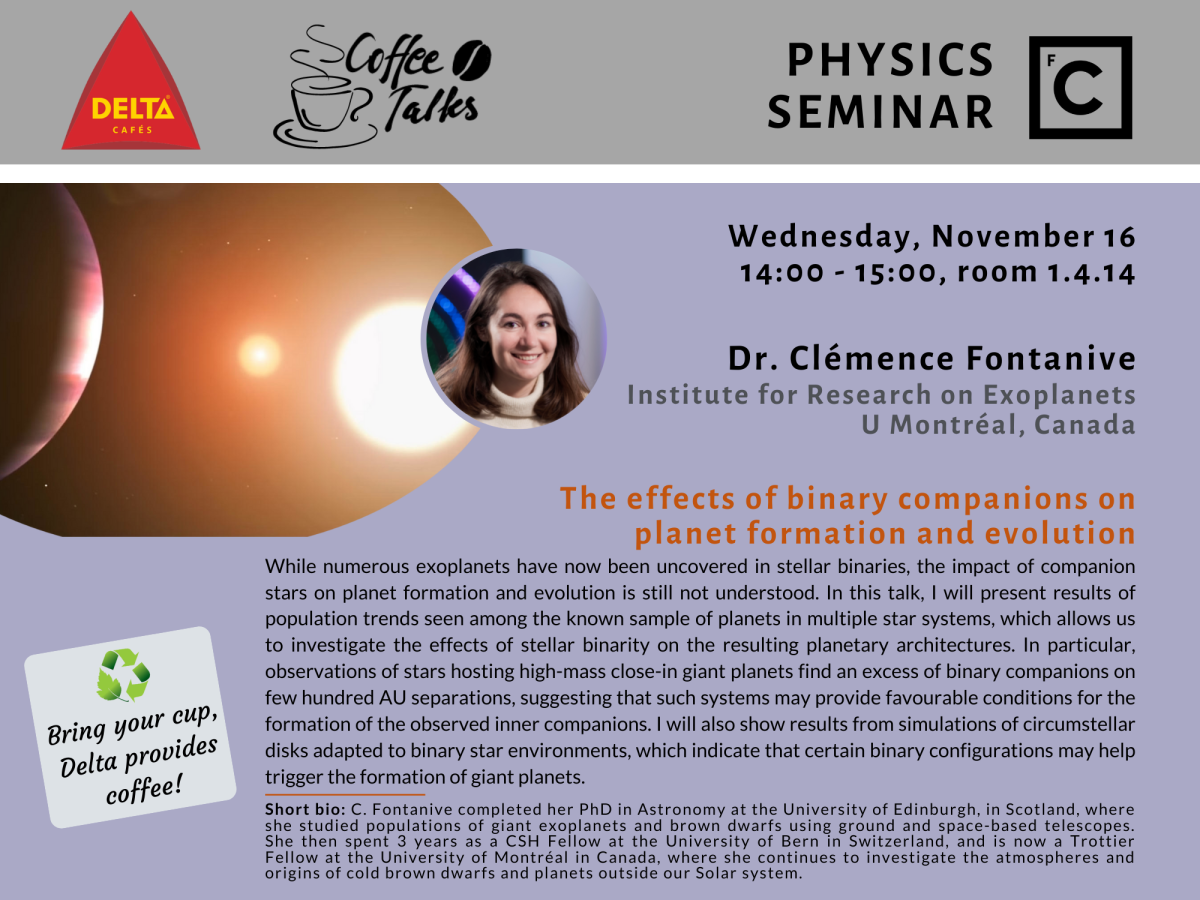Por Clémence Fontanive (Institute for Research on Exoplanets, U. Montréal, Canada).
While numerous exoplanets have now been uncovered in stellar binaries, the impact of companion stars on planet formation and evolution is still not understood. In this talk, I will present results of population trends seen among the known sample of planets in multiple star systems, which allows us to investigate the effects of stellar binarity on the resulting planetary architectures. In particular, observations of stars hosting high-mass close-in giant planets find an excess of binary companions on few hundred AU separations, suggesting that such systems may provide favourable conditions for the formation of the observed inner companions. I will also show results from simulations of circumstellar disks adapted to binary star environments, which indicate that certain binary configurations may help trigger the formation of giant planets.
Short bio: Clémence Fontanive completed her PhD in Astronomy at the University of Edinburgh, in Scotland, where she studied populations of giant exoplanets and brown dwarfs using ground and space-based telescopes. She then spent 3 years as a CSH Fellow at the University of Bern in Switzerland, and is now a Trottier Fellow at the University of Montréal in Canada, where she continues to investigate the atmospheres and origins of cold brown dwarfs and planets outside our Solar system.














